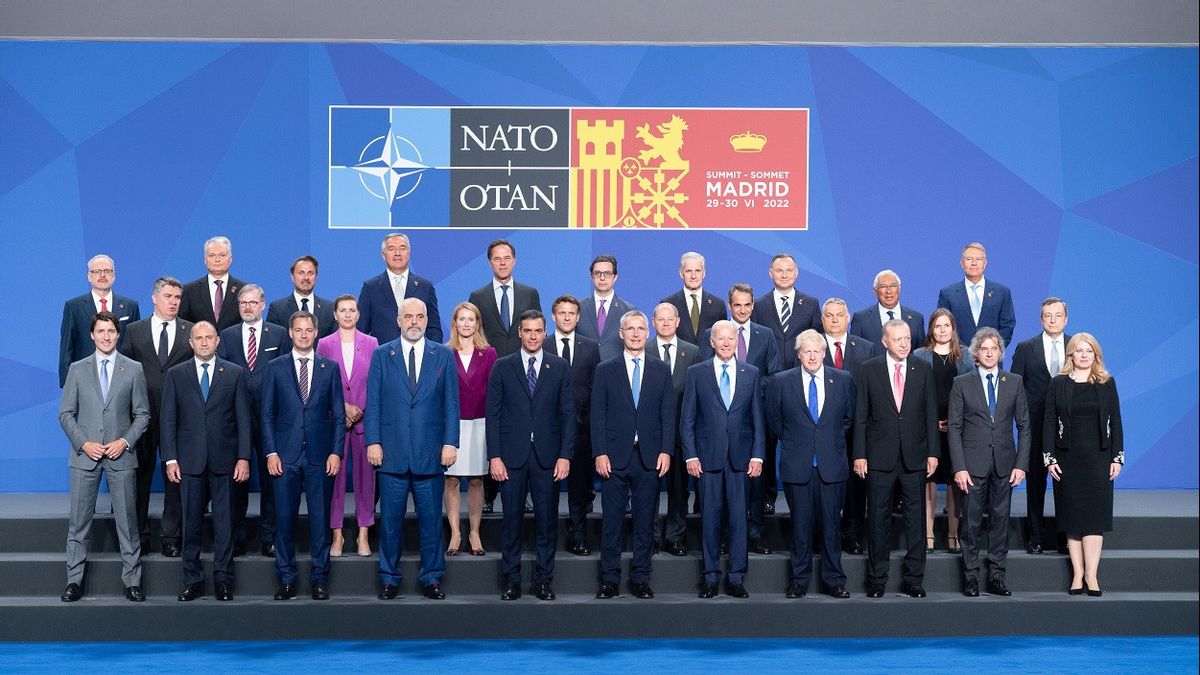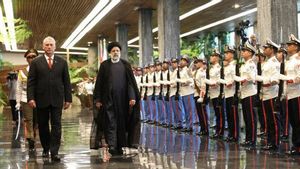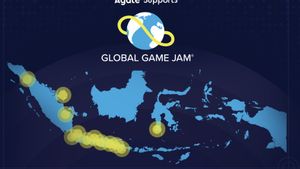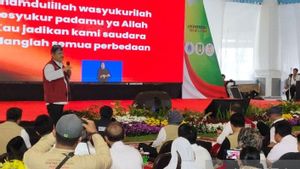JAKARTA - Secretary General of the North Atlantic Treaty Organization (NATO) Jens Stoltenberg has the opportunity to be extended, when senior officials from alliance members did not close the idea, while no candidate has yet been jointly supported.
In fact, Stoltenberg's extended term of office will end in September, after nine years serving as Secretary General of NATO since October 1, 2014. One period of office of the Secretary General of NATO is four years.
The military alliance has struggled to find a successor who could win the necessary consensus among its 31 members, from the United States, Europe to Turkey.
Asked if he had been persuaded to stay for a visit to Washington this week, Stoltenberg said: "I am responsible for all the decisions this alliance must make except one. And that's about my future. That's for 31 allies to decide," he said.
Traditionally, this position was given to a senior European political figure. However, no one can occupy the position without the support of the United States, the main force of the North Atlantic Treaty Organization.
Stoltenberg, who previously served as Norwegian Prime Minister, said in February he was not looking for an extension of his term of office.
Speaking to reporters on Thursday on the sidelines of a NATO defense minister meeting in Brussels, Stoltenberg confirmed this was still in effect.
But he has repeatedly refused to say what he would do if he was asked to remain a NATO member.
On the other hand, British Defense Minister Ben Wallace and Danish Prime Minister Mette Frederiksen are touted as candidates to replace Stoltenberg.
Minister Wallace said he was publicly interested in holding the post, while PM Frederiksen had been treated as a serious competitor despite insisting he was not a candidate, according to diplomats.
However, on Thursday PM Frederiksen described Stoltenberg's idea of sticking around as a "very good solution".
"I really like my job and I intend to keep it. So no, I'm not on my way to NATO," he told Danish broadcaster DR.
Minister Wallace's chances are considered small, as many NATO members think the position should be given to a former prime minister or president, to ensure it has top-level political influence, especially as the war rages on the threshold of the alliance.
In addition, many NATO countries also insist it is time for the alliance to have its first female head, referring to Frederiksen, a Social Democrat who became Denmark's youngest prime minister in 2019 and was re-elected last year.
A number of countries, particularly in Western Europe, signaled support for Frederiksen, while others expressed dissatisfaction as Denmark failed to achieve NATO's goal of spending 2 percent of GDP on defense.
Meanwhile, several other countries, particularly those from Eastern Europe, complained that they would become the third consecutive NATO head from the Nordic country.
SEE ALSO:
Separately, German Defense Minister Boris Pistorius said, if there were no signs the alliance would support any of the candidates, he welcomed Stoltenberg's extension.
"If we don't approve of a candidate for succession, NATO won't be able to do it without a secretary general. So I naturally support the extension, especially as I value the cooperation (with Stoltenberg)," he told reporters.
Asked about Stoltenberg's extension, Finnish Defense Minister Antti Kaikkonen replied: "That choice doesn't sound bad to my ears."
The English, Chinese, Japanese, Arabic, and French versions are automatically generated by the AI. So there may still be inaccuracies in translating, please always see Indonesian as our main language. (system supported by DigitalSiber.id)


















